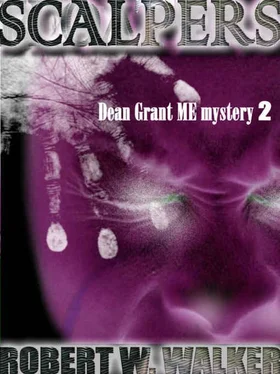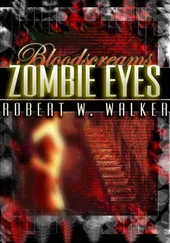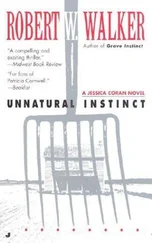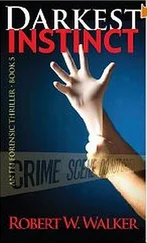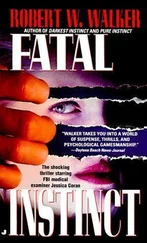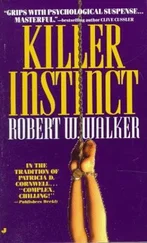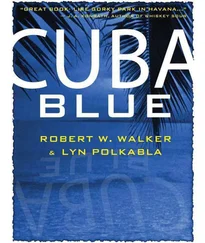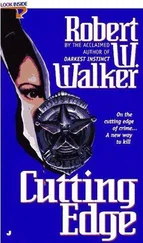Hodges gritted his teeth. He was a man unaccustomed to backing down from a directive already issued, or a fight he knew he could win. “You've got twenty-four hours.” Hodges then tossed the seconal spray can down and stormed out as an ambulance, siren blaring, rushed into the lot outside. This time, Hodges wisely dodged the press. His last remarks in the press had been an embarrassment even to himself.
Soon enough the tragic and awful tale of a cop turned psycho would be spread across the front pages, Dean thought, unless he could prove otherwise. At the moment “otherwise” amounted to a series of oddities about the scene and his own gut reaction. They were not enough to save Park, and whatever family he had, from the merciless scrutiny of the public. No one in Dean's position, no policeman on any force in the nation wanted to point the finger at an innocent cop, dead and unable to tell his side of the story—no more so than, say, the Pilot's Association wanted to see the finger pointed at a defenseless and dead pilot after a 747 crash. As much as he'd suspected Park of keeping secrets, Dean could not now condemn him out of hand as the so-called Scalper. Maybe, just maybe, it was exactly what the real killer or killers wanted him and Sid Corman and the rest of the city to believe. Time would tell. Time, and tests which they must begin immediately.
Talk outside was running to a lover's quarrel between Park and Peggy Carson. Sid had heard the wild rumor on his way in, along with the fact that Park had taken a knife to the heart.
"Lay you ten-to-one, Sid, the knife I took out of Dave Park's chest will fit contour for contour the wounds inflicted on our scalping victims."
"And the scalpel?"
"Neat switchblade job, just as you thought."
"You ever get a strange, kinda sick feeling, Dean, when you're right about such things? Almost like ... like if you say something, it then happens?"
Dean knew the feeling well. It was a kind of déjâ vu. When a man spent so much time thinking, contemplating, and gathering information on a case he'd become obsessed with, it was not uncommon.
"Yeah, Sid ... I know the feeling.” Dean then asked Dyer to take Peggy home. She was being charged with nothing, and in fact had been commended by the Chief of Police for bravery above and beyond the call of duty.
"Are you going to be all right, Peggy?” Dean asked her at the door.
"I ... I'm a survivor.” She managed a weak, less-than-persuasive smile as her hand went to grip his.
Dean almost said obviously, but instead, he gave her a warm hug. “Hopefully, by sunrise Sid and I will have made some sense of all this. As soon as I know—"
"Thanks ... thanks so much."
"It wasn't wise of you to rush out on me tonight,” he reprimanded her.
She dropped her gaze. “I'm sorry I betrayed our friendship. I just felt I had to do something ... and now this. I can't remember killing Park. I don't believe I did, and if I didn't—God, they might've killed me, too. When I came to, my shirt was torn open, my belt unbuckled, and the zipper on my uniform opened, and something ... or someone ... had touched me. I was shivering from it."
"Go with Frank now,” Dean advised her. “Get some rest, and tomorrow we'll talk more."
Dean turned to find Sid working over Dave Park's inert form. “What do you think, Sid?"
"What do I think? What do I think? Well, I'll tell you, Dean, old boy, I think we're both goddamned fools."
"How's that, Sid?"
"Figure it out, Dean. We're here ulcerating inside over a dead body and trying to put all the pieces together again, at least so no seams show while other doctors are in bed. I know you enjoy being a member of a rare breed, and I know that guys in our profession are in short supply, but that doesn't cut it with me anymore. I tell you, I'm about ready to hang out my shingle, become a G.P.” While Sid talked, he worked. He was taking a car vacuum to Park's body, the little machine sifting fibers, loose hairs, any minute evidence that could tell them something about how the man might have died.
Dean knew exactly what Sid's complaints were. He had heard them recounted a hundred times by every M.E. he'd ever met. Only a fraction of the medical examiners around the country were even qualified as forensic pathologists, and only a few of these worked at it fulltime. Maybe forty or forty-five doctors in the whole United States had the requisite extra five years of medical training and were full-time M.E.'s like himself.
When the money end of it was looked at, Dean realized why most doctors opted for hospital and private practice, where they could pull down $175,000 a year. Maybe Sid was right. Maybe the two of them, making in the neighborhood of $75,000 yearly, were fools after all.
Outside, Dean could hear a strident woman's voice, shouting such things as, “ I saw she had blood in her eyes, I knew she'd come for no good reason. God help me, I just knew—I knew!—shouldn't've let her go bustin’ in, but I, I didn't know what else to do. ..."
Somehow, a sharp-eyed reporter had gotten through the door with the medics, and Dean found him looking over his shoulder at Park's remains just before the medics were allowed their way with the body, Sid instructing them to bag the clothing and deliver the corpse to Sid's slab room for an autopsy.
"Did the policewoman kill him, Dr. Grant?” asked the reporter.
For the first time Dean looked at the extra pair of eyes in the room. The man looked remarkably like Tom Warner without the glasses. “We're not soothsayers or seers, young man, we're pathologists. And pathology takes a great deal of careful reading of scientific evidence. I'm afraid I can't answer you one way or another at this time. Now please, if you will—"
"But Dr. Grant, your reputation, your years of experience ... can't you give me at least your best ‘guesstimate'?"
"Guesstimate—do you people want to print guesses and hunches and gossip, or do you want facts, figures and informed opinions?"
"We're in the business of reporting to the public, and the public has a right to know if it's true or not, if the Scalper has been killed by an Orlando policewoman tonight, a policewoman who was attacked by the Scalper not two days ago!"
"Yeah, all right, then ... you've already got your story outside in the parking lot. You don't need me to add anything to it."
"Can I take that as confirmation, sir?"
"You may not."
"But you said—"
"I said, if you were listening, that at this point nobody knows what happened here, and nobody knows if David Park was or was not the Scalper. Is that clear enough? Sorry to spoil the headline you'd probably already fashioned and sent to your editor. Officer, will you get this man out of here?"
"Come on, Murphy!” shouted a cop at the reporter. “How'd you slide in here, on your own grease, or VO-5?"
"Damned reporters,” muttered Sid. “They always want to try people in the press."
"Everyone wants assurances, Sid—assurances from men like us—that everything's right with the world again, and that God has seen to the punishment of the wicked."
"Ain't it the truth. Looks like we got an all-nighter ahead of us, my friend. Are you up for it?"
"Hodges hasn't given us much choice."
"Got a cot in the lab. We'll try and catch forty winks between tests. Got to keep the coffee coming, and somehow make my wife believe I'm working again."
"Come on, let's get out of here and get to it,” said Dean.
"Got everything?"
"It's all here,” Dean said, patting his valise, “all the real story, if we can rightly decipher it."
"Hate to imagine what tomorrow's headlines'll say."
"Pretty good notion,” Dean muttered as they arrived at the coroner's car and began putting their wares into the back seat. “I know I'll be misquoted, and have my words twisted or given some innuendo I hadn't intended—or taken out of context."
Читать дальше
